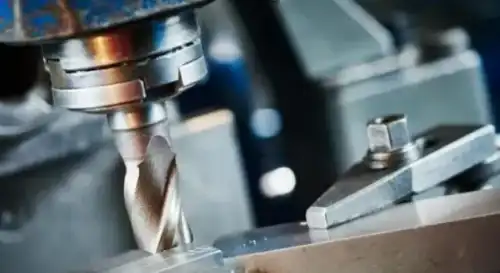In the field of metal processing, difficult-to-forge titanium alloys often bring considerable challenges to cutting operations due to their unique physical and chemical properties. To overcome these problems, it is particularly important to correctly select and reasonably use titanium alloy cutting oil. This article will explain in detail how to select titanium alloy cutting oil and its efficient application strategy to help you easily complete cutting tasks.

1. Titanium alloy cutting oil selection strategy
Considering material properties: Titanium alloys are known for their high chemical reactivity and low thermal conductivity, which requires cutting oils to have good lubricity and cooling properties. Therefore, when selecting oils, priority should be given to cutting oils that can provide stable lubrication and rapid heat dissipation under extreme conditions.
Preferred extreme pressure additives: It is recommended to use cutting oils containing extreme pressure additives such as sulfides, chlorides or phosphides. These additives can form a protective film on the surface of the tool and the workpiece during the cutting process, effectively reducing direct contact and friction between metals, thereby extending the tool's life and improving processing quality.
Flexible selection of oil type: According to processing requirements, emulsified oil and water-soluble cutting fluids are both feasible options. For processes that require a higher lubrication effect, such as drilling and reaming, extreme pressure soluble oil is a better choice.
2. Efficient application method of titanium alloy cutting oil
Precise concentration adjustment: Cutting oil usually needs to be diluted with water according to the recommended concentration before use. The specific concentration should be flexibly adjusted according to the type of processing (such as general processing, grinding, and heavy-load processing) to achieve the best use effect.
Optimization of cooling and lubrication methods: The use of advanced cooling and lubrication technologies such as high-pressure spray cooling and high-pressure internal cooling can significantly improve the cooling effect and lubrication performance during the cutting process, help reduce cutting temperature, reduce the formation of cutting nodules, and protect the tool from excessive wear.
3. Precautions for use
Anti-corrosion treatment: Due to the low thermal conductivity of titanium alloy, high temperature is easily generated during cutting, resulting in the formation of cutting nodules and increased tool wear. In addition, although the chlorine-containing extreme pressure cutting fluid has a significant effect, the parts need to be thoroughly cleaned after use to prevent intergranular corrosion.
Strict oil management: Avoid mixing titanium alloy cutting oil with other oils to prevent oil deterioration and failure. At the same time, the quality and concentration of the cutting oil should be checked regularly to ensure that it remains in the best condition throughout the entire processing process.
By carefully selecting the appropriate titanium alloy cutting oil and following scientific usage methods, the cutting difficulty can be significantly reduced, and the processing efficiency and workpiece quality can be improved. In actual operation, it is recommended to flexibly adjust the cutting oil concentration and cooling lubrication method according to the specific working conditions, and pay close attention to various details in the cutting process to ensure the smooth progress of the processing process.











